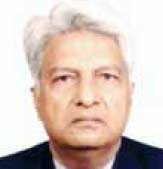[stextbox id=”info”]
“The government plans restoration of at least 25,000 megawattsuclear power plants are coming up and this will require much more manpower.”
coming up and this will require much more manpower.”
— Dr H.C. Goel, director, Amity Institute of Nuclear Science and Technology (AINST), Noida
[/stextbox]
Nuclear engineers develop the processes, instruments and systems for national laboratories, private industry and universities that derive benefits from nuclear energy for society. As a nuclear engineer, you may solve challenges in the areas of consumer and industrial power, space exploration, world food and water supply, environmental protection, medicine and transportation.
In other words, this branch of engineering deals with the technology of harnessing energy contained in the atom generally by fission or fusion.
Where do you fit?
A nuclear power plant is a complex technological marvel that requires all kinds of engineers who will have to handle work related to power generator, reactor, fuel, radiation, electricity, materials and radioactivity.
Many nuclear engineers design, develop, monitor and operate nuclear plants used to generate electricity. They may work on the nuclear fuel cycle—production, handling and use of nuclear fuel and safe disposal of the waste produced by generation of nuclear energy. Others research the production of fusion energy. Some specialise in the development of power sources for spacecrafts that use radioactive materials. Others develop and maintain the nuclear imaging technology used to diagnose and treat medical problems.
“At present, most of the engineers who work at nuclear reactors come from engineering branches like mechanical, civil and electrical, and even include physicists and scientists who learn nuclear engineering on the job. Even from IIT Roorkee, students join Bhabha Atomic Research Centre (BARC) and get trained in nuclear energy,” notes Dr A.K. Jain, head of physics department at IIT Roorkee.
Power plants also require a large number of technicians to handle electrical things like power lines, installations and boilers. They are usually diploma holders in engineering. [stextbox id=”info”]
 “Worldwide, over 140 new nuclear plant projects are in the licencing and advanced planning stage, with over 60 currently under construction.”
“Worldwide, over 140 new nuclear plant projects are in the licencing and advanced planning stage, with over 60 currently under construction.”
— Carol Berrigan, senior director-industry infrastructure and supply chain at the US-based Nuclear Energy Institute
[/stextbox]
Nuclear engineers also carry out theoretical research work, which is a valuable branch of study.
In addition to the jobs identified above, there is a pressing need for health physicists and radiation protection technicians in environmental monitoring and programmes to assure health and safety of the workforce. Besides, there is demand for operators and many other nuclear technicians in such fields as non-destructive examination for quality assurance, instrumentation and control, mechanical and electrical maintenance, and chemistry.
How to get there?
There are very few nuclear engineering courses being offered in India. IIT Kanpur, for instance, offers a Nuclear Engineering and Technology programme that provides R&D expertise in the experimental and theoretical studies of fusion and plasma physics, radio isotope applications in manufacturing engineering, computer-aided tomography, reactor safety, heat transfer in nuclear sub-systems, and development of radiation detectors. It costs students approximately Rs 30,000-40,000 per semester.
Dr Jain says, “Some private universities have also started courses in nuclear engineering by hiring retired professors but they have the limitations of practical training and underdeveloped laboratories.”
Universities like Punjab University and Delhi University too offer degree courses in this field. Students can also participate in research activities, summer jobs and internships at BARC or Indira Gandhi Center for Atomic Research (IGCAR), Kalpakkam, for two-three months and gain some experience.
AINST, Noida too offers B.Tech (four-year) and M.Tech (two-year) degrees in nuclear science and technology either as an integrated dual-degree (five-year) course or separate courses.
Who is hiring?
The biggest recruiter is the Department of Atomic Energy, government of India, with a large number of organisations running under it. These include BARC, Trombay; IGCAR, Kalpakkam; and Nuclear Power Corporation of India Limited (NPCIL), Mumbai.
According to Dr Goel, “Pay scales in NPCIL and BARC are equivalent to government-office pay scales, and based on grades and time served within the organisation. Private enterprises do not base compensation on grades and competent employees are compensated well. Students can even apply abroad.”
“It is all government-controlled now and salary is as per the Sixth Pay Commission,” adds Dr Jain.
It’s interesting to note that nuclear jobs have the highest median income of any engineering discipline. “The median salary of an electrical technician at a U.S. nuclear power plant is about $67,500; for a mechanical technician, $66,500; and for a reactor operator, $77,800. These jobs commonly include family medical benefits, pensions and incentive compensation plans,” informs Berrigan.






